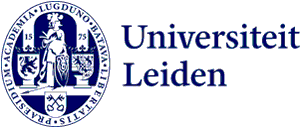
Meet our new colleague Letty ten Harkel: ‘I am interested in what happens when different cultures come together’
In August 2022 we welcome our new colleague Dr Letty ten Harkel as Assistant Professor in Roman and Post-Roman Archaeology. For the past ten years she has built up an impressive track record in the School of Archaeology at the University of Oxford. Read the interview about her background and research interests.

Viking settlements
Before ending up in Oxford, Ten Harkel got her first degree in Medieval Studies in Utrecht, specializing in medieval history and Old English. ‘After a year as visiting student at Cambridge, I opted for an MA course in Medieval Archaeology in York. I then worked in developer-funded archaeology in Cambridge, excavating many prehistoric, Roman and later sites, before doing my PhD at Sheffield from 2006. My focus was on Viking settlements in England, but I also remained involved in other projects.’ Here she cemented her interest in what happens when people from different cultures come together. ‘This is a common strand in all of my research, all the way to the present day, including how we as archaeologists deal with colonial heritage.’
Massive projects
The past ten years saw Ten Harkel working in a wide array of projects in Oxford. ‘One of these was the English Landscapes and Identities (EngLaId) project, led by Chris Gosden. The aim of this project was to analyse long-term patterns in archaeological data from the middle Bronze Age to the end of the early medieval period.’ In this massive project a large team handled some 900,000 records to visualize patterns in the landscape. ‘We also sifted through several centuries of archaeological research. An important part of this project was the metadata analytical side.’
Another project Ten Harkel is involved in is the Endangered Archaeology in the Middle East and North Africa (EAMENA) project, a collaboration between the universities of Oxford, Leicester and Durham. ‘For this we mostly use Google Earth and other satellite imagery, as well as some limited ground survey.’ She laughs. ‘It has a ridiculously large coverage: some 20 countries and many relationships with national and international stakeholders.’ In addition to these large projects, Ten Harkel managed to keep some independent projects alive. ‘I’m still building on my PhD subject: the early medieval archaeology of the North Sea region.’
A wide scope of time and space
It would not come as a surprise that Ten Harkel is interested in a study field as broad as Roman and Post-Roman archaeology in the first millennium AD. ‘Both the longue-durée aspect as well as the wide regional scope fit well with my background. This certainly drew me to apply.’ The position will allow her to continue several of her endeavours. ‘I am in the process of setting up a collaborative project with a colleague on long-term landscape use in the Sinai. Another project that I would like to revive is an archaeological study of the ancient port site of El Mina, in Lebanon.’ She also plans to continue building on her North Sea research, and is keen to add more of the European side of the Mediterranean to her portfolio.

Teaching
First of all, Ten Harkel is going to focus on teaching. ‘In the first year we have agreed to cement my teaching. Then I will work towards launching a fieldwork training campaign, possibly in the western Mediterranean.’ Large-scale approaches will remain an important part of Ten Harkel’s frame of reference. ‘Not only the contacts between different cultures, but also the transitions of different time periods hold my interest. So this is something that will come back in everything I do.’
Connections
Ten Harkel will be embedded in the department of World Archaeology. ‘Joanita Vroom will be my manager, so I have already been in touch with her quite a bit, and with Joanne Mol about teaching. In the coming academic year I will teach different courses together with Peter Akkermans and Quentin Bourgeois.’ On a research level, she already has many connections at the Faculty. ‘I know the Rural Riches team, and various other people in the Faculty as a result of the different projects I have been involved in. I am very much looking forward to meeting more people to discuss possible future collaborative projects.’
